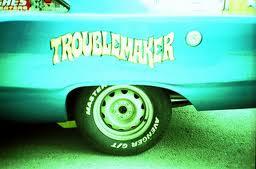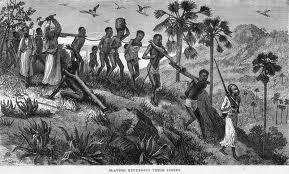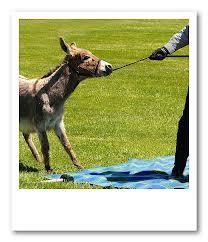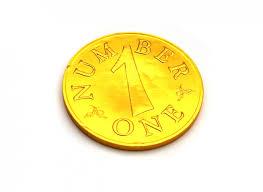ДЕПАРТАМЕНТ ЛЕСНОГО ХОЗЯЙСТВА НИЖЕГОРОДСКОЙ ОБЛАСТИ
Государственное бюджетное профессиональное
образовательное учреждение Нижегородской области
«КРАСНОБАКОВСКИЙ ЛЕСНОЙ КОЛЛЕДЖ»
МЕТОДИЧЕСКИЕ УКАЗАНИЯ
по дисциплине «Английский язык»
для студентов II курса
часть 1 «Описание людей.
Межличностные отношения. Повседневная жизнь»
для специальности 43.02.14 «Гостиничное дело»

| РАССМОТРЕНО: на заседании предметно-цикловой комиссии общеобразовательных дисциплин ПРОТОКОЛ № 2 от « 27 » сентября 2019г. Председатель ПЦК ______ | Разработала: преподаватель иностранного языка Воронина М.В.
|
Красные Баки
2019
Lesson 1.
HOW TO DESCRIBE A PERSON
Interesting Facts.
- Fourteen bones make up the human face.
- There are nine muscles in your ear.
- Our teeth start growing 6 months before you are born.
- Your nose can remember 50,000 different scents.
- Babies are always born with blue eyes.
We use to be when we talk about
–age
He is young. She is old. They are 25 years old.
-height )
He is tall. She is short.
-weight
You are slim. They are fat.
–personality
You are nice. He is rude.
We use have when we talk about
-hair style
You have short brown hair. We have long blond hair.
-eye color
She has big blue eyes. He has small green eyes.
№1. Read and translate.
This young girl is tall and slender. She has a long face, round eyes with long eyelashes and bushy eyebrows. Her nose is pointed and her chin is split. She has a big mouth with thin lips and uneven teeth. She wears her long straight hair in two braids.
This young girl is tall and slim. She has an oval face, narrow eyes with long eyelashes and thin eyebrows. Her nose is small and her chin is round. She has a small mouth with full lips and even teeth. She is bald.
This young girl is short and stout. She has a round face with dimples on her cheeks and a double chin. Her eyes are big with long eyelashes and thick eyebrows. Her nose is turned-up and her mouth is small with full lips. She wears her dark wavy hair shoulder-length.
This young girl is short and skinny. She has a square face, expressive eyes with short eyelashes and thin eyebrows. Her nose is pointed and her chin is split. She has a big mouth with thin lips and uneven teeth. She wears her long straight hair in a ponytail.
This young man is very bulky. He has a big bald head, round eyes with short eyelashes and thick eyebrows. His nose is big and his chin is square. He has a small mouth with thin lips. He wears a moustache.
This young man is tall and slender. He has a long face, narrow eyes with long eyelashes and thin eyebrows. He has a pointed nose and split chin. His mouth is big with thin lips and uneven teeth. He wears a small beard. His hair is short and thin.
This young man is tall and stout. He has a square face with dimples on his chin and cheeks. His eyes are big and round with long eyelashes and bushy eyebrows. He has full lips and he wears a bushy moustache. His hair is thick and curly. It is short.
This young man is very slender. He wears his long wavy hair loose over his shoulders. He has big narrow eyes with long eyelashes and thin eyebrow. He has a pointed nose and a split chin. His mouth is big with thin lips and uneven teeth.
This young man is slim. He has an oval face, shiny eyes with short eyelashes and bushy eyebrows. His nose is turned-up and he has dimples on his cheeks. He wears a long beard. He is bald.
This man is short and skinny. He has short curly hair. He wears a short beard. He has a long face with a pointed chin. His nose is long and his lips are thin. He has small eyes with long eyelashes.
№2. Fill the gaps
___ young woman in ___ picture has ___ long wavy hair and ___ big mouth with ___ white even teeth.
Paul has never worn ____ beard, but now he is wearing ___ moustache.
Margo is ___ tall stout girl, she is ___ teenager.
The baby was very cute. It had ___ round blue eyes, ___ button nose and ___ mouth that was always smiling.
Who is ___ short dark-haired man standing at ___ door.
My best friend is ___ very intellectual boy. His manners are ___ most polite in our class.
Alice often wears her hair in ___ ponytail. Sometimes she makes ___ braid.
№3. Continue the sentences.
Our hair can be… STRAIGHT, CURLY, TURNED-UP, WAVY, SMOOTH
Our noses can be… POINTED, SHORT, BUTTON-LIKE, LONG
Our eyes can be… BUSHY, NARROW, SHINY, EXPRESSIVE, ROUND
Our teeth can be… WHITE, SMALL, THICK, BIG
Our chins can be… ROUND, SQUARE, POINTED, DOUBLE
Our eyebrows can be… THICK, BUSHY, THIN, DARK
Our figure can be… SLENDER, SLIM, SKINNY, BOLD, BULKY
№4. Describe the people

№5. Find the correct adjectives about personality traits.
1. He has got lots of money.He helps everybody.He buys presents for the poors.
O-N-E-R-E-S-U-G
2. He never tell lies. O-S-T-E-H-N
3. She always tell lies and now her nose like Pinocchio’s. R-I-L-A
4. He uses bad words and always fights with his friends. U-D-E-R
5. He smiles every time.He is always happy. F-E-C-H-E-U-L-R
6. She is usually patient and doesn’t get easily annoyed. A-L-O-T-T-E-N-R
7. He loves poems and makes surprises to his girlfriend. He buys her red roses and sings love songs. I-C-O-R-A-N-M-T
8. He can’t talk to girls.Whenever he talks his cheeks become red and he feels ashamed.
Y-S-H
9. He never cares about other people.He just thinks himself and he gets benefit of others.
I-H-S-L-E-F-S
10. He has got much Money but never helps people. He doesn’t spend his money even on basic things. G-I-Y-T-S-N-
11. He doesn’t like working.He is always sleeping at home. He doesn’t do his homework. Z-A-Y-L
12. She is so arrogant.She exaggerates everything. A-B-O-F-L-S-U-T
13. She always has something to say.She never stops. A-I-T-L-V-K-A-E
14. He has got lots of friends.He helps everybody. He is supportive and liked by his friends. Y-L-I-N-D-E-F-R
15. He encourages dreams of his friends. I-S-P-U-O-T-V-P-R-E
16. You can always trust in him. B-L-R-I-E-E-A-L
17. He is a real gentleman. I-O-L-E-P-T
18. He is so zealous,intolerant of rivalry. S-O-J-E-L-U-A
19. He is so stiff and obstinate.If he says “no” you cannot change his opinion.
S-B-O-N-T-U-R-B
Additional materials
Face Shape
Square
Oval
Round
Triangular
Heart-shaped
Thin
Wide
Chiseled
Skin and Complexion
Complexion is the natural appearance and color of the skin, especially of the face. For example, “Mary has a soft, creamy complexion.”
Wrinkled: covered with lines or loose folds of skin; often associated with age
Freckled: sprinkled or covered with light brown spots
Ruddy: skin that has a reddish tint; may have the appearance of sunburn
Sallow: skin that has a yellowish tint; may be associated with illness
Tanned: skin with a warm, golden-brown tint
Rosy or fresh-faced: pink-cheeked, fair complexion that glows with a hint of pink
Other skin-related adjectives: pale, fair, spotless, silky, smooth, creamy, dewy, baby-soft, peaches-and-cream, glowing, paper-thin or translucent (as with a very old person), sunburned, peeling, rough, callused, weathered, weatherbeaten, craggy, leathery, mottled, dry, brown, dark
Eyes
Shape, size, and appearance: large, small, almond-shaped, round, squinty, crinkly, bulging, heavy-lidded, hooded, deep-set, close-set, hollow, tear-filled
Eye color: black, brown, hazel, green, blue, violet, gray, amber
Eye expressions: piercing, mesmerizing, sad, sorrowful, haunted, gentle, sympathetic, warm, compassionate, expressive, bright, twinkling, lively, dancing, laughing, shifty, sly, distrusting, sleepy
Other: brown-eyed boy, bright-eyed sister, wide-eyed child, gold-flecked eyes
Mouth and Lips
Lip shape and size: thin, full, pouting, rosebud (baby’s lips, often), pursed (puckered up, as when concentrating)
Mouth expressions: laugh, smile, beam, grin, frown, grimace, scowl, sneer, curl, pout
Adjectives describing the mouth or mouth expressions: toothy, toothless, gap-toothed, kind, sweet, dimpled, relaxed, firm, serious, cruel, snarling
Hair
Hair color: black, brunette, brown, chestnut-brown, blond, honey-blond, golden-blond, ash-blond, fair, cornsilk, auburn, red, strawberry-blond, gray, silver, white, salt-and-pepper
Texture or appearance: wispy, fuzzy, wavy, curly, kinky, frizzy, wild, untamed, unmanageable, straight, spiky, stiff, buzzed, shaved, trimmed, parted, neatly-combed, tamed, cascading, long, short, cropped, dull, shiny
Hair styles: braids, ponytail, pigtails, bun, messy bun, twist, bob, ringlets, flip, cornrows, extensions, bangs, buzz, layered, feathered, chopped, gelled, spiked, slicked down
Lots of hair: thick, full, lustrous, bushy, coarse, wiry, stiff
Little hair: thin, scraggly, fine, baby-fine, downy, wispy, limp, flat, balding, bald, bald spot, receding (gradual loss of hair at the front of the head)
Treated hair: permed, dyed, bleached, highlighted, weaved, streaked, colored
Facial Hair
Hair: beard, goatee, mustache, soul patch, sideburns
Beard growth: stubble, fuzz, peach fuzz, bristles, five o’clock shadow (describes new beard growth that’s shadowy in appearance. It’s usually more noticeable late in the day on the jaw, chin, or cheek area, but some men purposely grow five o’clock shadows.)
Adjectives: bearded, bushy, stubbly, bristly, scratchy, unshaven, shaggy, whiskered, beardless, clean-shaven, smooth, trimmed, neatly-trimmed, pencil-thin
Body
Build: small, slim, slight, thin, lean, willowy, skinny, angular, bony, fine-boned, chunky, chubby, large, portly, plump, round, stout, pudgy, full-figured, ample, broad-shouldered, burly, solid, muscular
Posture: stand, sit, slouch, flop, lean, recline, rest, stretch, sprawl, curl up, roost, squirm, arch, slump, stoop, bend, hunch, scoot, walk, run, race, jog
Clothing
Fabric: denim, twill, wool, cashmere, cotton, linen, seersucker, gingham, lace, chiffon, tulle, velvet, velveteen, fleece, flannel, tweed, polyester, jersey, corduroy, spandex, leather
Bottoms: jeans, skinny jeans, cargo pants, yoga pants, pleated pants, slacks, trousers, overalls, sweatpants, crop pants, capris, skirt, shorts, board shorts, bermuda shorts
Tops: sport shirt, dress shirt, polo shirt, button-down shirt, chambray shirt, tank top, blouse, tunic, long-sleeve, short-sleeve, sleeveless, collared, T-shirt, V-neck, scoop-neck, boat-neck, turtleneck, sweatshirt, hoodie, pullover, sweater, cardigan, sweater set
Other clothing: dress, gown, frock, pinafore, uniform, coveralls, costume, pajamas, bathrobe, robe, vest, jacket, blazer, coat, apron
Footwear: socks, stockings, shoes, slippers, sandals, flip-flops, mules, loafers, heels, pumps, boots, ankle boots, riding boots, slouch boots, athletic shoes, sneakers, tennis shoes, gym shoes, runners, trainers, Chucks
Accessories: mittens, gloves, hat, cap, head wrap, bandana, scarf, muffler, necklace, choker, bracelet, ring, earrings, cuffs, cufflinks, purse, clutch, bag, tote, sunglasses, eyeglasses, glasses
Adjectives (appearance): stylish, natty, smart, chic, classy, elegant, polished, draped, flowing, sheer, casual, relaxed, carefree, starched, crisp, sharp, dressy, lacy, shiny, shimmering, sparkling, glittery, sloppy, torn, ripped, tattered, disheveled, slovenly, tacky, unkempt, faded, scratchy, worn, frayed, nubby, rough, smooth, pliable, warm, soft, quilted, knit
Adjectives (patterns): argyle, striped, solid, plaid, checked, gingham, ikat, paisley, dotted, polka-dotted, floral, houndstooth, herringbone, chevron, geometric
Sentence Starters Describing Clothes
Smartly dressed in (name of garment), the attorney …
Casually clothed in (name of garment), the young woman …
Wrestling wildly, Tim and Ethan tore holes in their (name of garments) when they…
Elderly but spry, my grandfather sported a (name of garment) and (name of garment) …
Wearing a (name of garment), the detective …
Quick as a flash, the acrobat whipped off his (name of garment) and began to …
Lesson 2.
Read, translate and discuss the texts
Relationships at Work1
Your success at work depends as much on strong relationships as it does on job skills. Even if you're socially very outgoing, you'll be more successful if you think as much about the needs of others as you do your own.
The single most important key to successful relationship building is to focus on other people's needs. Making an effort to get to know people simply doesn't go far enough if your approach is too self-oriented.
Why Relationships at Work are Important
Positive relationships are essential for your success for many reasons. Here are some of the key ones:
Getting ahead is a bit like getting elected. Having supporters who say good things about you helps you to get ahead. Your reputation depends on what people say about you, not just on how well you do your work. You don't want people to describe you as a backstabber, as uncooperative, arrogant, untrustworthy or in any other nasty way.
Collaboration with other parts of the business is much easier if people who don't know you well trust you. To gain the cooperation of others, you need to be seen as someone who will reciprocate. You can't expect to get help from people if you never give any when you are asked.
Teamwork within your own department is much more productive when relationships between team members are positive. There is much more to effective teamwork than just getting along with people, but it's an important first step.
Job satisfaction. Work is more enjoyable if everyone gets along. Even if you don't need much social contact, you may find it uncomfortable or unsatisfying working where people ignore or avoid you. Achieving targets with people is more fun than on your own. Professional golfers are individuals but they report being much more strongly motivated to do well when they play in team events like the President's Cup or the Ryder Cup.
Building Effective Relationships at Work.
The social skills that help you get to know people outside of work are important in work too, but not the whole story.
Show interest in people
The key step that many people overlook is showing interest in others, sensitivity to their needs and being willing to help them. The best way to show interest in others and get to know them is to ask them questions. It's not about grilling them like a police interrogator but regularly asking questions.
First, showing interest and getting people talking about themselves and their interests helps to get people to like you. Second, you can then use that information to enable you to better help them. Think of them like customers and yourself as a sales person. If you really want to help them get what they want (to sell yourself to them), you need to understand what's important to them, their likes and dislikes. Also, people appreciate a good listener, so try not to seem impatient or give the impression that you're just going through the motions and not really listening.
Spend time with people
While it's vital to maintain a professional distance from people at work if you don't want others to gossip and badmouth you, it's also important to spend time with people both on and off the job. Have lunch together or a drink after work, preferably in small groups so it doesn't look like you are excluding others.
Be strategic
You can't devote your whole time at work to building relationships, so you need to prioritize. This means placing more emphasis on relationship building with some people than others. Being strategic means investing more time in those activities that you think will yield the bigger return. Of course, you can make the wrong strategic decisions, as can a business, so you need to adjust your investment of time regularly as new people come along, others leave or you judge that a certain person won't be much help to you in achieving your career goals.
Balance self-oriented with other-oriented goals
It's vital to avoid a one-sided focus on the question: "What's in it for me?" People will pick up on it quickly if you're only interested in your own needs. The more important the relationship to you, the more you need to convey the impression that helping that person is something that you enjoy doing or is important to you.
Your boss is a good example. As your most important customer, you need to keep abreast of your boss's changing needs and priorities at all times, volunteering for projects and being accommodating without being too ingratiating or self-effacing. Most bosses appreciate honest feedback and diplomatic suggestions more than a "yes" man or woman. People are more likely to respect you if you don't come across as too desperate to win anyone's attention. Relationship Building Skills
Put people at ease by being relaxed, telling entertaining stories, being open about yourself, admitting mistakes, thus showing appropriate humility, and spending time with people.
Active listening means more than just paying attention. It includes asking for elaboration by saying such things as "I see, tell me more." "And then what happened?" "How did that make you feel?" "What do you hope to get out of that?" Even just saying "I understand" and waiting to hear more counts as active listening.
Sensitivity to people's feelings. Even if you aren't naturally perceptive, not very quick to notice how people are feeling, you can take the time to ask periodically, especially during stressful times and when it is possible that something might have upset someone.
Trust means delivering on promises, being honest, not talking behind people's backs or badmouthing them. If you speak positively about others, as long as you are genuine and not articifial, people will assume that you don't likely say bad things about them.
Share information. This doesn't mean cc'ing everybody you know on every email you send. It's much more personal if, having discovered people's interests, you share information with them that is related to their interests.
Help others. Be quick to volunteer to help people, remembering the need to be strategic. You can't do everyone else's job for them. This is like collecting IOU's, keeping in mind that you can't always expect people to do as much for you as you do for them.
Diplomatic assertiveness. Assert yourself diplomatically. Make suggestions in a sensitive manner, using questions if possible, like: "How would this work for you?"
Regular communication. With your most important relationships, that is your boss and key stakeholders within your team or across the organization, try to set up regular times to exchange information and ideas.
Conflict resolution. Resolve conflict promptly and in a collaborative, win-win manner before relationships degenerate.
Networking. Ask your contacts to introduce you to other key players in the organization or industry. Build relationships with them selectively.
Get feedback. Devise some method to get feedback on how people perceive you and their relationships with you. A one-page anonymous questionnaire is useful and not too time-consuming. You are like a business that needs feedback from your customers to be successful.
Exercises
I. Translate the words:
Selfish, honest, lazy, helpful, absent-minded, hard-working, double-faced, hot-tempered, modest, cheerful, careful, clever, well-read, sociable, generous, kind, brave, loyal, careless, patient, creative.
II. Find the antonyms:
Polite, hard-working, clever, capable, kind, frank, sociable, attentive, rude, silly, lazy, shy, cruel, inattentive, double-faced, light-minded, selfish, not fussy, careful, honest, hot-tempered, cunning, responsible, incapable.
III. Complete the following sentences:
1. If a person always tells the truth, he is called … 2. If a person works much, he is called … 3. If a person thinks too much about himself and his interests, he is called … 4. If a person makes friends easily, he is called … 5. If a person quickly loses his temper, he is called … 6. If a person isn’t frank and says a lie, he is called … 7. If a person never shows off, he is called … 8. If a person is always ready to help, he is called … 9. If a person likes to joke, he is called … 10. If a person doesn’t work much and wastes his time, he is called … 11. If a person often forgets his things, he is called … 12. If a person cares much about other people, he is called … 13. If a person reads much and knows much, he is called … 14. If a person isn’t afraid of anything, he is called … 15. If a person is a real friend, he is called … 16. If a person is able to invent and develop original ideas, he is called … 17. If a person is calm and not easily annoyed, he is called … 18. If a person is ready to give and to share, he is called …
IV. Answer the questions:
Are you a hard worker? What motivates you to work?
When you were a child, what did you want to be when you grew up?
What qualities should a good boss have?
How important is it to get along with co-workers? Is it a good idea to socialize with them outside work?
What do you think about office romances? Is it a good idea or a bad idea to date a co-worker? Why?
Are you an ambitious person? What career goals do you have?
Which professions are very well-paid these days? Why does society value those workers highly?
Are there any jobs you think are not paid enough? Why doesn’t society value those workers highly enough?
Do you know any workaholics? What makes them work so much?
Are there jobs that men do better than women do? How about vice versa?
What is the atmosphere like at your workplace?
What is the dress code at your college? How strict is it?
V. Translate the idioms 1)-20). Match the idioms to their corresponding meanings.
He’s the salt of the earth | A person who is unwilling to try anything new or do anything exciting. |
he’s as stubborn as a mule | A person who has the desire and the ability to be very successful in their job or studies |
He’s a killjoy | A person who talks too much, and does not say anything interesting or important. |
He’s a slave driver | A person or thing that is very annoying. |
He’s a trouble-maker | A person who is determined to do whatever they want and unwilling to change their mind. |
He’s a windbag | A person who is too interested in what other people might be doing. |
He’s a couch potato | A person who behaves as if they know everything. |
He’s got a chip on his shoulder | A person who shows no fear, kindness or sympathy. |
He’s an early bird | A person who likes to spoil other people’s enjoyment. |
He’s a busybody | A person who is lively, good and entertaining at mixing with people. |
He’s a stick in the mud | A person who is honest, sincere and kind even though sometimes he/she does something wrong. |
He’s the life and soul of the party | A person who often causes trouble. |
He’s a cold fish | A person, group or thing that causes problem, usually because they won’t behave properly. Hard to deal with. |
His heart is in the right place | A person who is often alone or who prefers to be alone rather than with other people. |
He’s a bit of a loner | A person who makes people work extremely hard. |
He’s an awkward customer | A person who looks unfriendly and without strong emotions. |
He’s a pain in the neck | A person who gets up, arrives, etc very early. |
He’s a real know-all | A person who spends most of his/her time sitting around watching TV in a lazy manner. |
He’s as hard as nails | A person who feels angry because they think they have been treated unfairly especially because of sex, race and background. |
He’s a high-flyer | A person who is decent, dependable and unpretentious. Good and honest you can always depend on. |
Work in pairs and ask questions ach other
Student A's questions to Student B
What images spring to mind when you hear the word ‘work’?
Are you interested in working?
Someone said work is for horses and idiots, do you agree?
What would life be like if we did not have to work?
Would you like to work in your own business?
Would you like to work in another country?
What are working conditions like in your country?
What is the best job in your country?
What do you want to do for work?
What did your parents do for work?
Student B's questions to Student A.
Why do we have to work?
What is a workaholic?
Would you like to work the night shift, day shift or afternoon shift?
Do people work long hours in your country?
Is work a dirty word?
Will you ever become a millionaire by working?
Is housework really work?
Is raising a family hard work?
Is looking after a pet hard work?
What is it like to be out of work?
IDIOMS TO DESCRIBE PEOPLE + example
A trouble-maker. David seems to enjoy deliberately causing problems or starting arguments.

A couch potato. Jenifer seems to spend all her time sitting in front of the television.

A slave-driver. My boss Mr Walton makes us all work very hard.

A real know-all. The problem with Stan is that he behaves as if he knows everything.

A loner. Martina doesn’t really enjoy spending time with other people. She prefers to be on her own a lot.

A windbag. The annoying thing about Jane is that she talks too much all the time.

A pain in the neck. Patricia is a nuisance, and is always annoying people.

A cold fish. Freddie is rather unfriendly, and seems to have no strong feelings.

Her heart’s in the right place. Harriet is very kind and has the right feelings about important things.

She’s as hard as nails. Nellie is rather tough, and doesn’t really care about the effects of her actions on other people.

An awkward customer. Mrs. Manser is a very difficult and unhelpful person, and nobody likes dealing with her.

As stubborn as a mule. Mike never changes his mind, even when everybody tells him he is being unreasonable.

He has a chip on his shoulder. Chaz often becomes offended or angry because he thinks he’s been treated unfairly in the past.

A stick in the mud. Brian is very old-fashioned and refuses to try anything new.

A busybody. Mr Ford shows too much interest in other people’s private activities.

The life and soul of the party. Peter really enjoys social occasions and is fun and exciting to be with.

A high-flyer. Gregory works hard and is always extremely successful in anything he does at work.

An early bird. John always wakes up at half past five and is at work by seven o`clock.

A killjoy. Caroline hates to see people having fun and always tries to spoil other people’s pleasures

The salt of the earth. Nigel is a good and honest man who will always help you if you have problems.

Lesson 3.
Daily Routine
1. Translate the following expressions into your own language.
| Wake up = | Leave home = |
| Get up = | Go to school= |
| Get dressed/put the shoes on = | Arrive at school = |
| Go to the bathroom = | Start school = |
| Have a shower = | Finish school = |
| Brush my teeth = | Do the homework= |
| Comb my hair = | Come back home = |
| Have breakfast = | Help my mother at home = |
| Make the bed = | Have lunch/dinner |
| Talk on the phone = | Download music and films = |
| Work on the computer = | Play computer game= |
| Feed the cat/dog = | Surf the net = |
| Read = | Update my status on the facebook |
| Write = | Check my e-mail = |
| Do the housework = | Get undressed = |
| Walk the dog = | Say the prayers = |
| Watch TV = | Go to bed = |
| Listen to music = | Go to sleep/fall asleep = |
2. Read and translate the text
Sophie’s daily routine
Sophie is sixteen years old and she lives in Nizhniy Novgorod, Russia.
She usually gets up at a quarter to seven, she has a shower, gets dressed and then she brushes her teeth. After that, she goes downstairs and has breakfast. For breakfast she usually has milk, toast and orange juice. Then she brushes her teeth again because she likes them white and healthy!
Then she grabs her bag and goes to the bus stop to catch the bus. Classes start at half past eight and finish at half past four. She usually has lunch at the college canteen with her groupmates at about 12 o’clock. Her best friend is Kate and Sophie always sits next to her at lunch.
After college she returns home and does her homework. She is a very hard-working student and she never misses a college task! After homework, she usually listens to music and watches television a bit.
At half past seven it is time for dinner. Then she usually reads a book or chats with her parents for a while.
Finally, she goes to bed at about eleven o’clock, but before that she brushes her teeth. Sophie is a happy girl!
3. Answer the questions about the text.
1. What time does Sophie get up? -----------------------------------------------
2. Does she usually have a shower? ---------------------------------------------
3. What does she eat for breakfast? ----------------------------------------------
4. What does she drink for breakfast? --------------------------------------------
5. What does she do after breakfast? ---------------------------------------------
6. Does she go to college on foot? ------------------------------------------------
7. What time does college start? --------------------------------------------------
8. What time does it finish? --------------------------------------------------
9. Where does Sophie usually have lunch? -------------------------------------
10. Who is Sophie’s best friend? -------------------------------------------------
11. What does Sophie do when she returns home? ----------------------------
12. How many times a day does she brush her teeth? -------------------------
13. Is she a happy girl? --------------------------------------------------
4. Order Sophie’s daily routine.
She goes to bed at about ten o’clock.
She gets dressed.
She catches the bus to college.
She has lunch at the college canteen.
She listens to music.
She gets up.
She does her homework.
She has a shower.
She has dinner.
5. Write the sentences in the interrogative and negative forms.
1. Sophie brushes her teeth three times a day.
NEG --------------------------------------------------
INT --------------------------------------------------
2. She goes to college by bus.
NEG --------------------------------------------------
INT --------------------------------------------------
3. She listens to music.
NEG --------------------------------------------------
INT --------------------------------------------------
4. She chats with her parents for a while.
NEG --------------------------------------------------
INT --------------------------------------------------
6. Прочитайте текст и постарайтесь ответить на вопросы:
Hi! My name’s Jane and I’m a secretary at a big company. Every morning I get up at 8 o’clock and have a shower. Then I have breakfast, get dressed and go to work. At work I send e-mails and answer telephone calls. At 12 o’clock I have lunch. I finish work at 18 o’clock and go home. At work I have dinner, surf the Internet and go to bed.
My weekend is much more interesting. On Saturday I usually do sports and go out with my best friend. Her name is Alice. We like to go to the cinema together. Sometimes we go to an art gallery or to a museum.
On Sunday I always spend time with my family. We watch TV together and talk. Sometimes my father plays the guitar.
I like my Sundays and Saturdays!
What does Jane do in the morning?
What does Jane do at work?
What does Jane do on Saturday?
Where do Jane and Alice do together?
What does Jane’s father do on Sunday?
Does Jane like her Sundays?
7. Дополните предложения.
He usually … up at 6.00 o’clock in the morning.
I … lunch at school.
In my family we usually … dinner at about 5m.
I … to bed late.
She always … her teeth before she goes to bed.
On Sunday, Kate goes … with her.
In the evening we often … to the radio.
My mother likes to … a bath.
8. Fill in the blanks with the Simple Present of the verbs in brackets:
Peter (1) ____ (start) his day at 7.00. He (2) ____ (have) breakfast in the kitchen with all the family. Each member (3) _____ (fix) his own breakfast. Peter (4) ____ (like) orange juice, toast and milk. He always (5) ______ (have) an apple: his mother (6) _____ (believe) “an apple a day (7) _________ (keep) the doctor away”. After breakfast Peter (8) _____ (make) his bed and (9) _____ (tidy) up his bedroom. He (10) _______ (get) ready for lessons. He mustn’t be late, mother (11) ______ (be) very strict.
At 8.00 the Hanson kids (12) __________ (start) their lessons. At midday they (13) _____ (have) lunch. Then it’s sport time: they (14) _______ (love) playing basketball, in-line staking and skate-boarding. After a refreshing shower the Hanson brothers (15) _____ (rehearse) till dinner, because their fans (16) ______ (be) very demanding: they (17) __________ (want) every detail to be OK.
Peter and his brothers (18) ______ (not/have) dinner with their parents as their father is always late. Their mother (19) ______ (not/like) it very much. So, at weekends they (20) ______ (be) always together.
9. Fill in the blanks with the Simple Present of the verbs in brackets:
Mary (1) ______ (wake) up at 7.00. Then she (2) ______ (get) up at 7.30 and she (3)________ (go) to the bathroom. She (4) ______ (have) a shower, (5) ________ (brush) her teeth and (6) ______ (comb) her hair. Afterwards she (7) ________ (have) breakfast. Ten minutes later she (8) ________ (take) her satchel, (9) _______ (kiss) her mother and (10) _______ (catch) a bus to school with her friend Diana. They (11) _______ (start) school at 9.00. They (12) ______ (not/have) lunch at the school canteen. At three o’clock they (13) _____ (return) home.
In the afternoon, she (14) ______ (study) her lessons and (15) _______ (ride) her bicycle. In the evening she (16) ______ (help) her mother prepare the dinner. After dinner she (17) ______ (watch) TV, her mother (18) _______ (read) a magazine and her father (19) ______ (go) to bed earlier since he (20) ______ (be) always the first in the family to get up.
10. Speak about them:
1) job: shop assistant
m
Victoria
orning:
gets up – 6:00
feeds her cat
makes her breakfast
b rushes teeth
rushes teeth
tidies her room
has breakfast
leaves to work – 8:15
afternoon:
finishes work – 5:00
goes shopping
has a light dinner at a café
goes to her aerobics lesson
evening:
arrives home – 8:00
calls her friends
has a shower
watches TV
goes to bed – 10:10
2) job: student
morning:
g
Jessica
ets up – 5:00 puts on her clothes
goes cycling (15 km every morning)
has a shower
has breakfast
goes to university – 7:45
afternoon:
h as lunch in the university canteen
as lunch in the university canteen
finishes her lessons – 4:00
meets her friends
arrives home – 6:00
makes dinner
evening:
studies
meets her boyfriend
has a shower
goes to sleep – 10:15
1 Written by Mitch McCrimmon
19





























 rushes teeth
rushes teeth as lunch in the university canteen
as lunch in the university canteen









